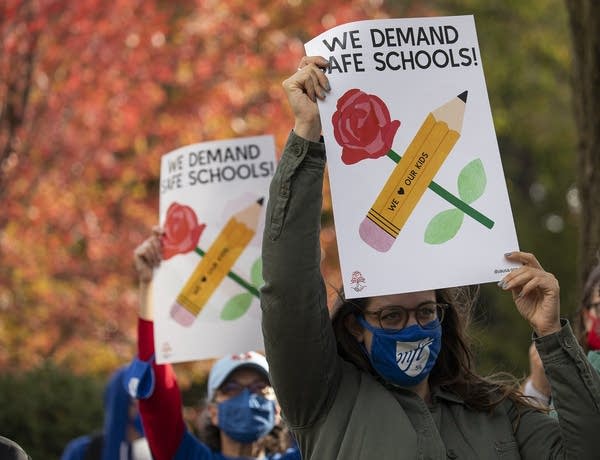Twin Cities educators seek assurances for safe return to classroom

Kindergarten teacher Madee Weisner (right) stands with other educators, Wednesday during a rally to demand safe and equitable schools during the COVID-19 pandemic.
Christine T. Nguyen | MPR News
Go Deeper.
Create an account or log in to save stories.
Like this?
Thanks for liking this story! We have added it to a list of your favorite stories.


